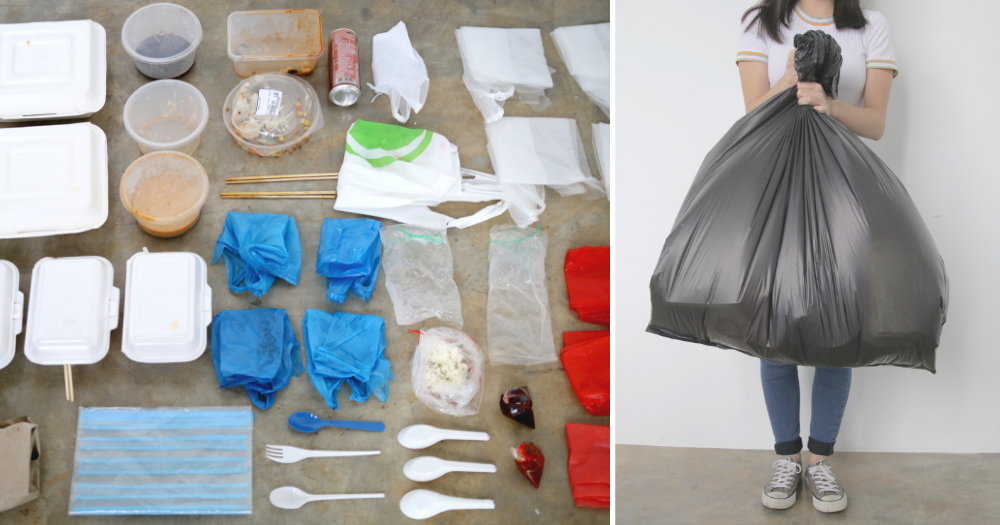Trying to save the planet is tough work.
But if we don't do it, no one will.
So how can we as regular Singaporeans do our part to protect the environment?
Sacrifice a bit of convenience
One place to start is the workplace. We spend a good part of our day working, so there's no doubt that plenty of trash is generated in the office.
One quick look around the Mothership office shows the amount of waste we produce.
Every pair of desks has one bin between them, so anything can be thrown away easily with one quick flick of the wrist.
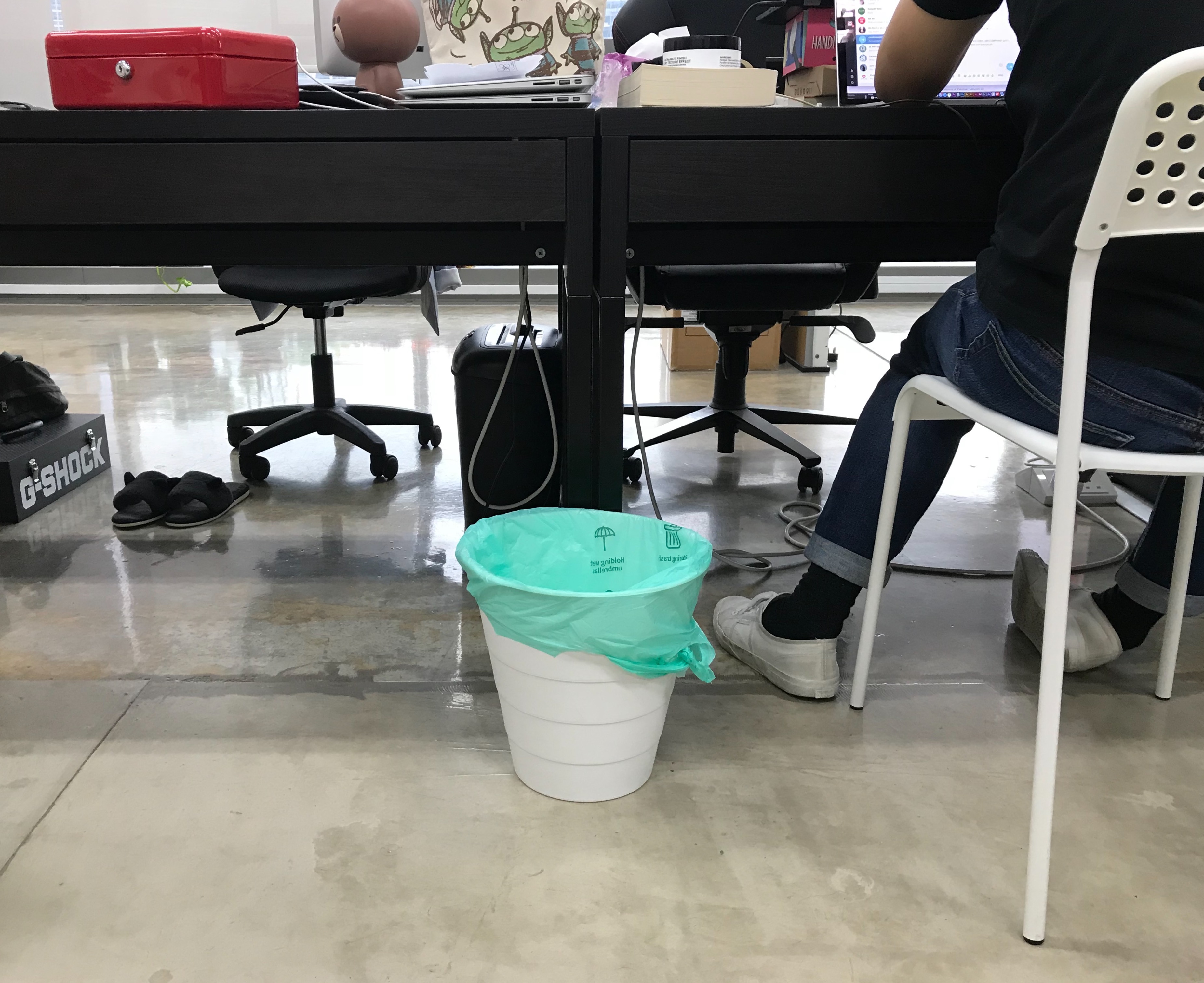 Photo by Ashley Tan
Photo by Ashley Tan
One giant black bin stands in the pantry, which, I can guarantee, is almost always full by lunchtime.
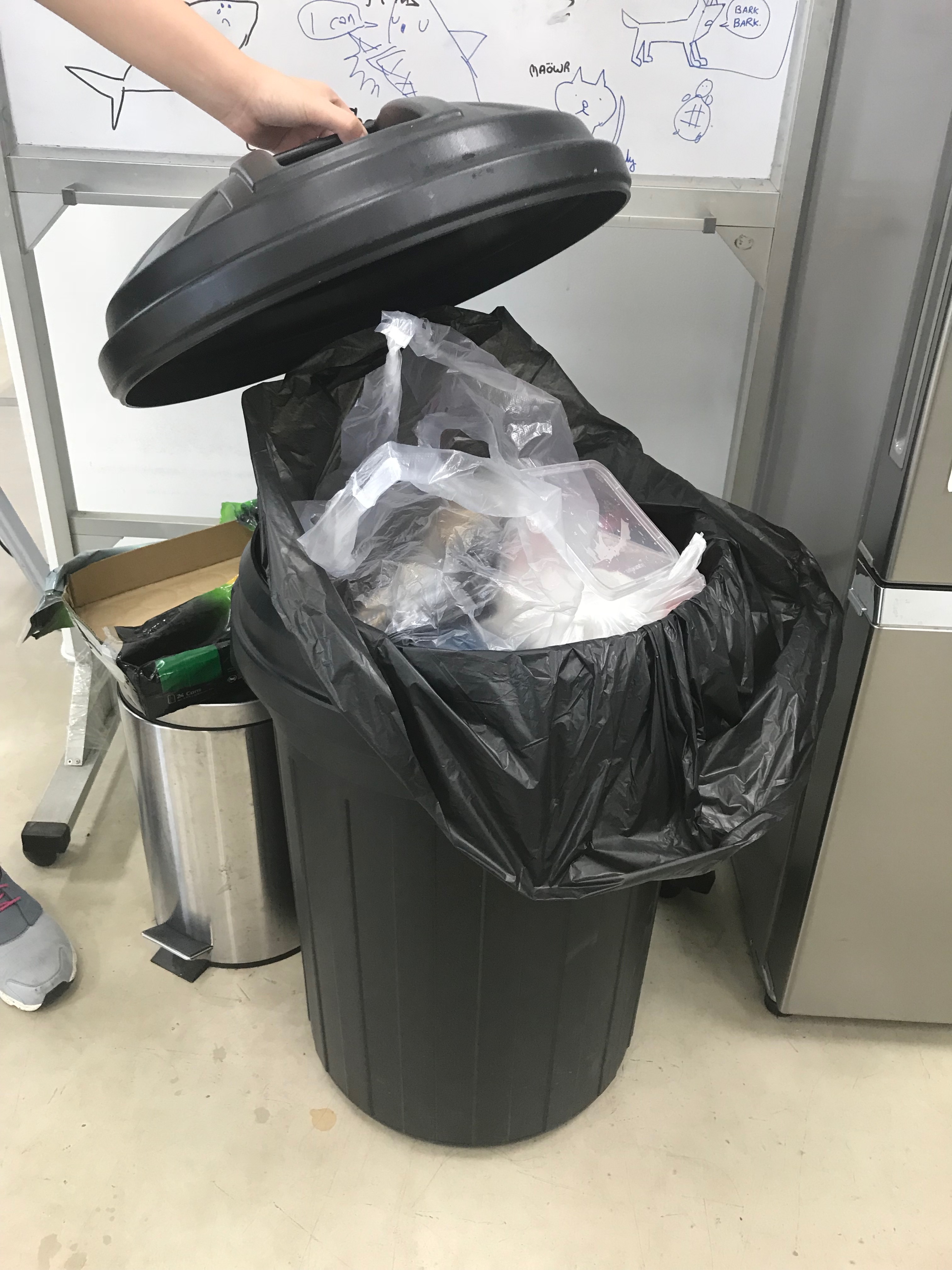 The amount of trash on a normal day by noon. Photo by Ashley Tan
The amount of trash on a normal day by noon. Photo by Ashley Tan
Thanks HR but maybe it is time to clean up our act.
Changing the office's dabao culture
Going zero-waste is nigh impossible, or at the very least, extremely hard for a group of millennials in the office who loves bubble tea and can't live without tissue.
But I still want to observe how much waste we could reduce by going slightly out of our way.
So to embark on this mission to make our office more environmentally-friendly, I got the office to go one day without producing lunchtime waste.
Why lunchtime?
Because why squeeze with others in the stuffy, sweltering heat of the canteen when we can eat in the comfort of the air-conditioned office? So instead, we opt to dabao (take away) every day.
However, all that takeaway would inevitably amount to a very large heap of trash.
So for one day last month, I got the Mothership team to bring reusables to dabao.
Almost everyone came to work the next day armed with reusable containers and cutlery.
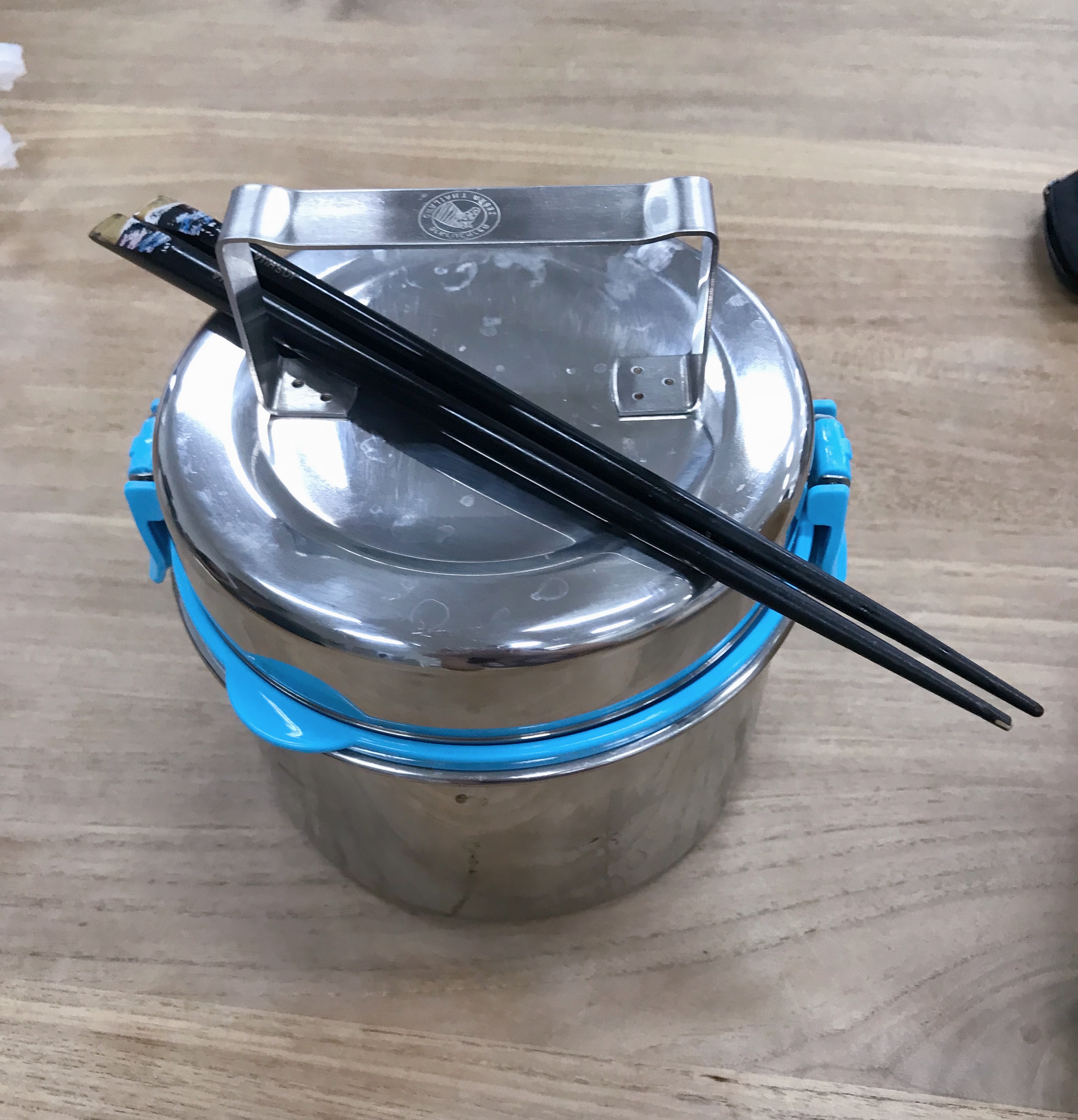 Photo by Ashley Tan
Photo by Ashley Tan
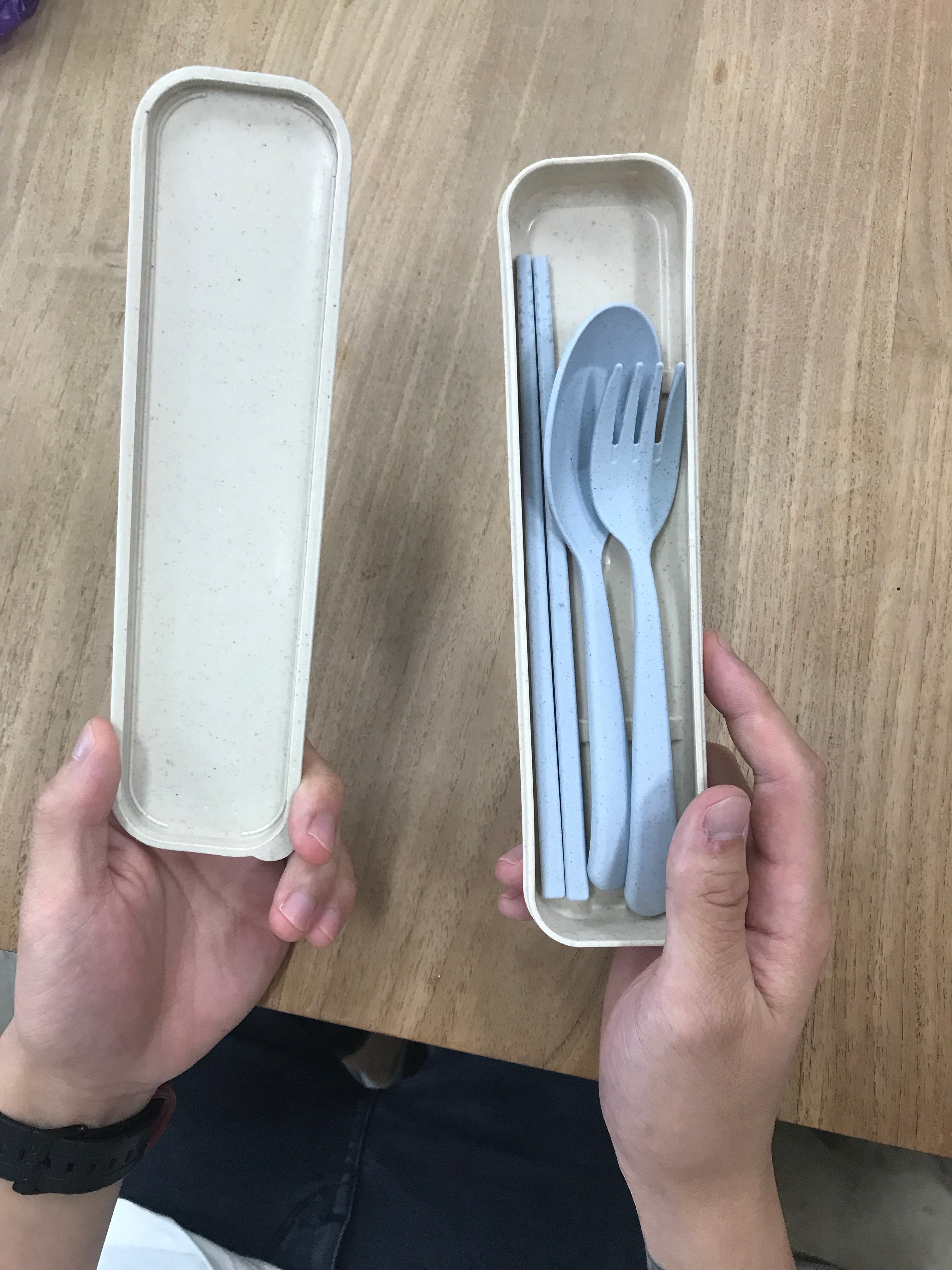 Photo by Ashley Tan
Photo by Ashley Tan
What's the difference?
Thanks to extremely cooperative colleagues, it was a sizeable reduction as compared to before—nearly two-thirds of our trash during lunchtime was reduced.
There was also a noticeable lack of disposable cutlery, since most people either brought their own, or used the metal cutlery that was available in the pantry.
Here's a typical day when we dabao as per usual:
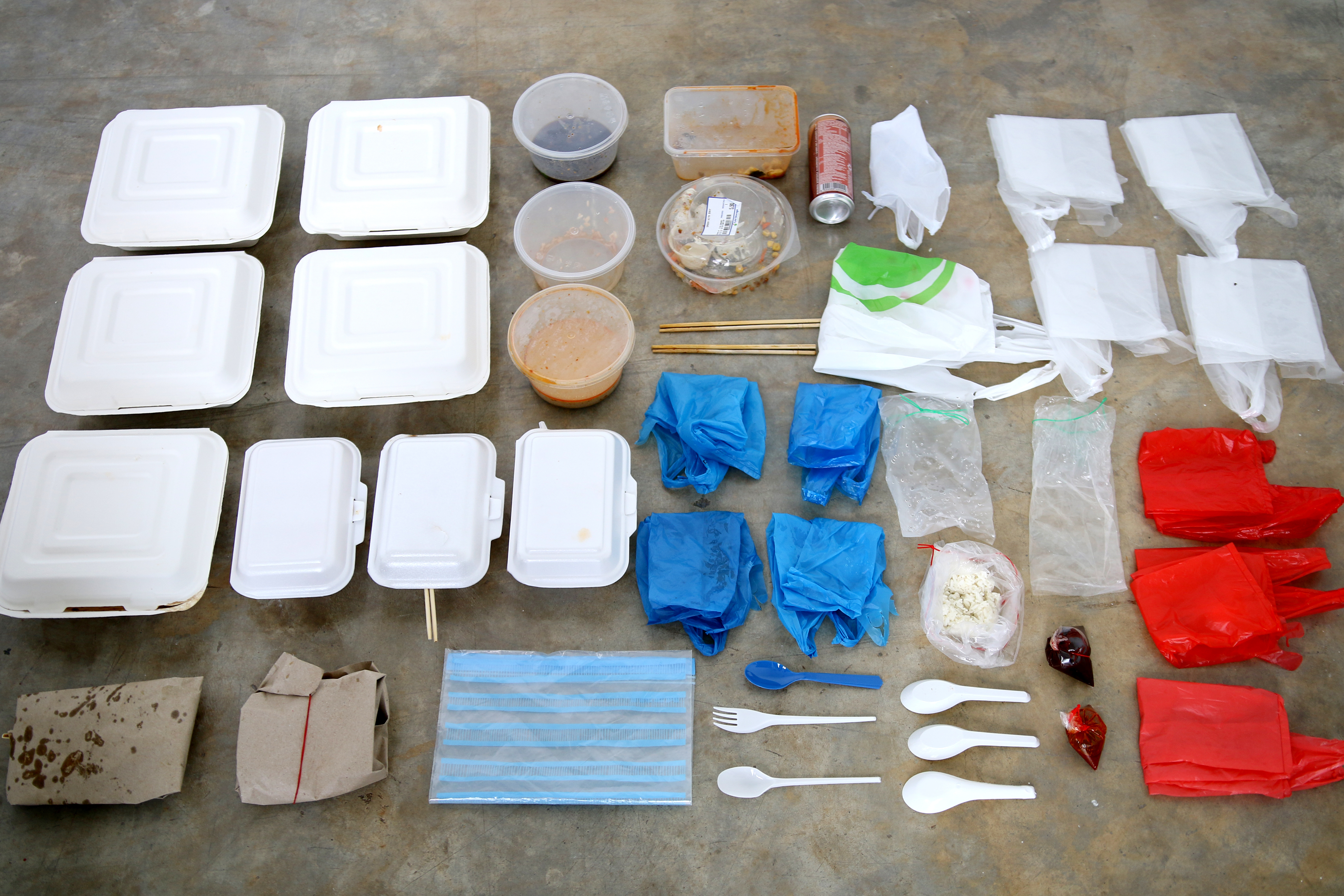 Photo by Angela Lim
Photo by Angela Lim
It's plastics galore—plastic forks, spoons, bags, containers. Not to mention the food waste.
And when the team made an effort to bring reusables:
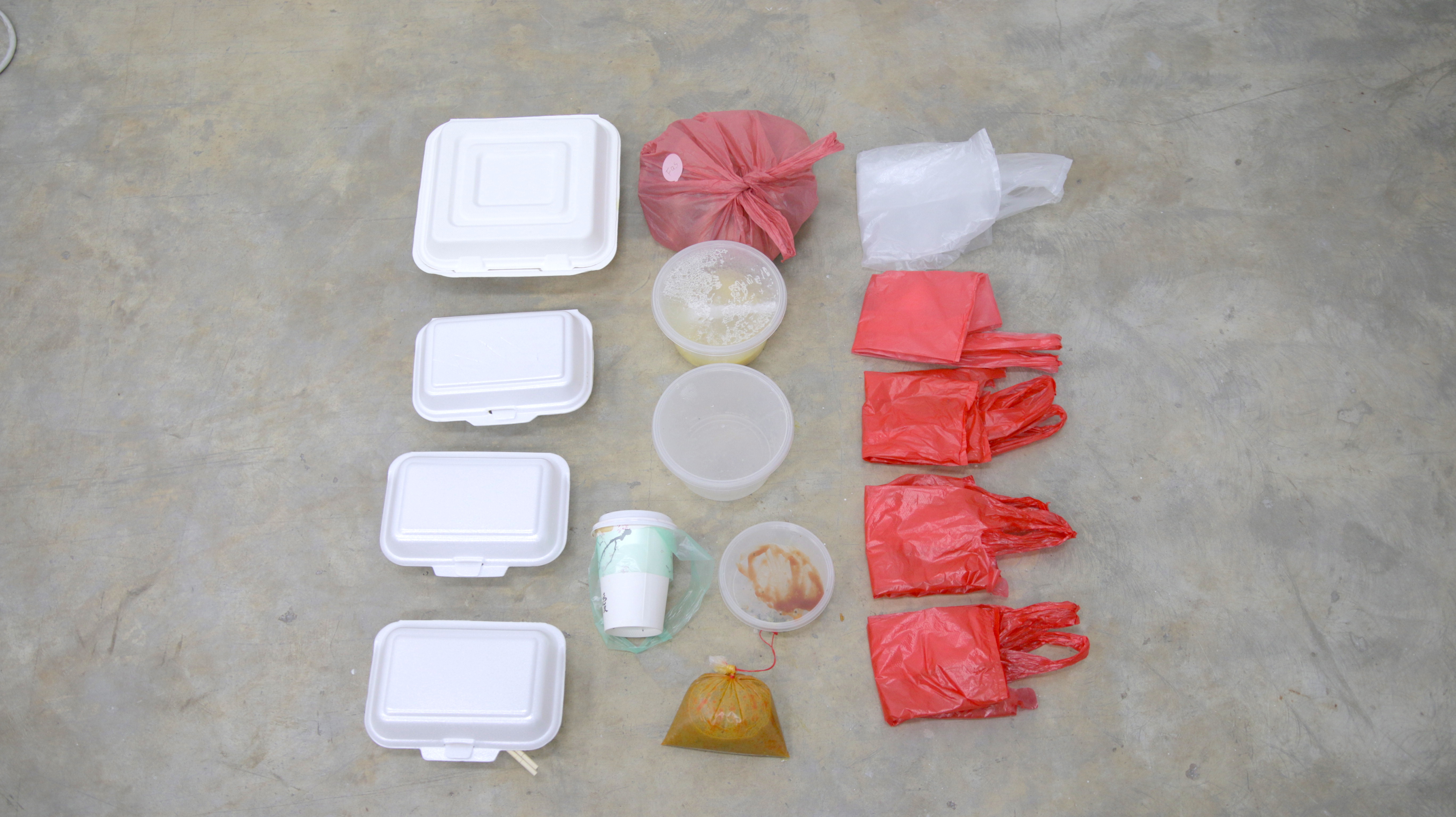 Photo by Angela Lim
Photo by Angela Lim
Since some colleagues "forgot" to bring their reusables *ahem*, some trash was still generated.
Here's a side by side comparison of the size of the trash bags containing lunchtime waste without (left) and with (right) the use of reusables:
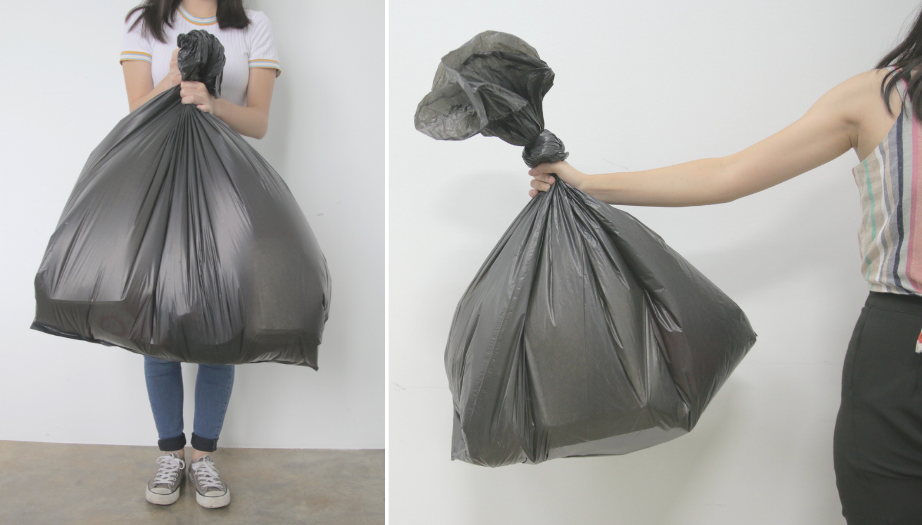 The author was too weak to carry the larger bag with one arm. Photo by Angela Lim
The author was too weak to carry the larger bag with one arm. Photo by Angela Lim
Five times less trash produced
Pictures aren't the best indicator, so we weighed the trash bags on both days as well.
Since a sensitive weighing machine or spring balance could not be found, and the digital weighing machine could not record the trash bag's weight, I had to resort to other more crude methods.
The weight of the trash without reusables, minus my weight, was 3.1 kg.
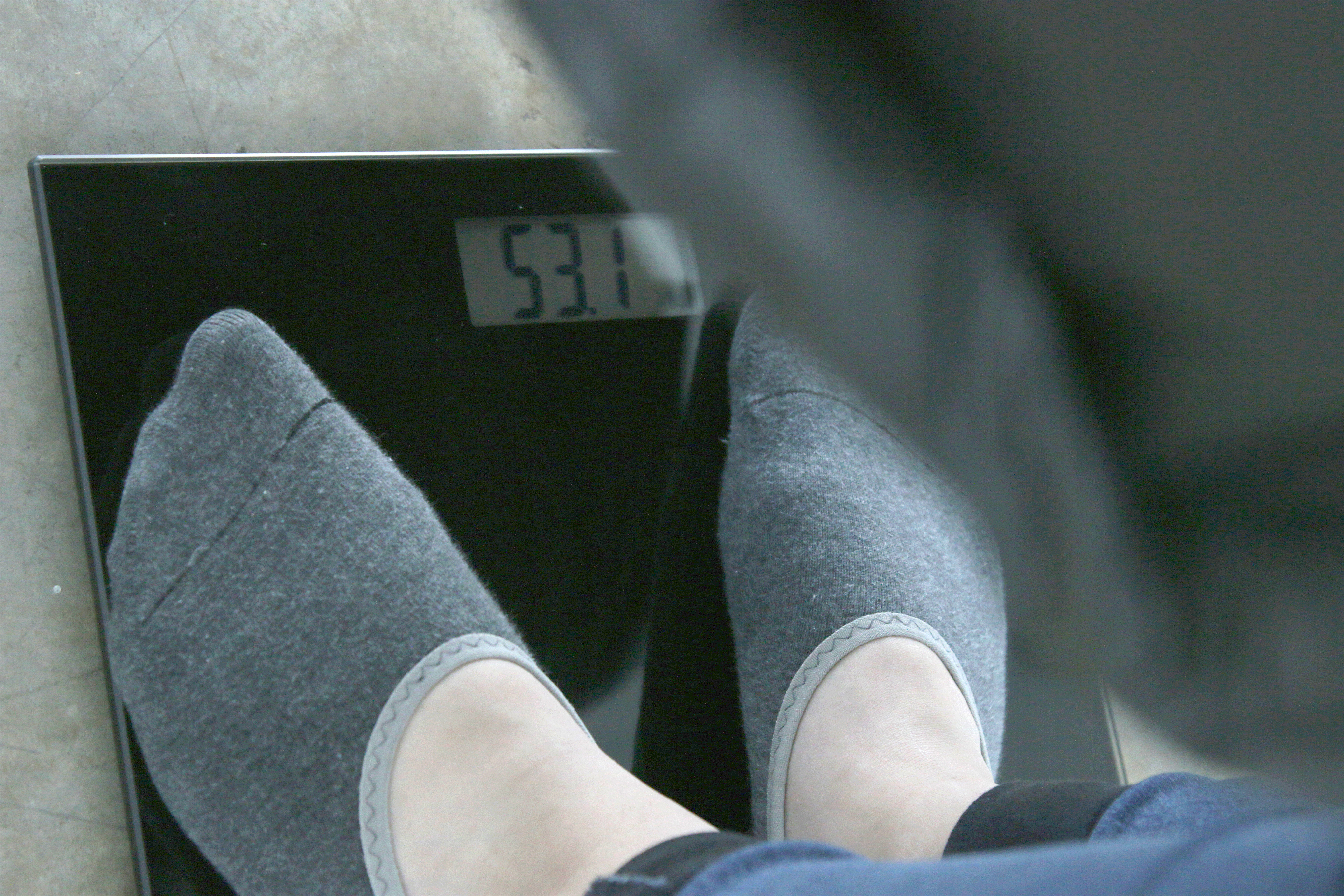 Photo by Angela Lim
Photo by Angela Lim
The following day with the majority of the team bringing reusables, it was surprising to see that the weight of our trash was actually reduced by five times.
Minus my weight, the trash amounted to just 600g.
 Photo by Angela Lim
Photo by Angela Lim
Small effort goes a long way
Evidently, despite the slight inconvenience of having to bring along your reusables and wash them after eating, the amount of waste reduced can be substantial.
Furthermore, with every plastic container/bag/straw foregone, you could be cutting back on marine plastic pollution and saving a turtle from a terrible death.
In 2017, around 223,000 tonnes of disposables were thrown away in Singapore by the domestic sector. That amount is equivalent to about 400 Olympic-size swimming pools.
Not forgetting the fact that the Semakau landfill will run out of space by 2035 at this rate of waste production.
Any other ways to make the office more sustainable?
Aside from just bringing your own reusable containers, what else can be done to green the workplace?
Here are five more tips:
1. Print double-sided. It cuts down paper consumption by half.
2. Use reusable mugs and cutlery instead of disposable plastic ones.
 Photo by Ashley Tan
Photo by Ashley Tan
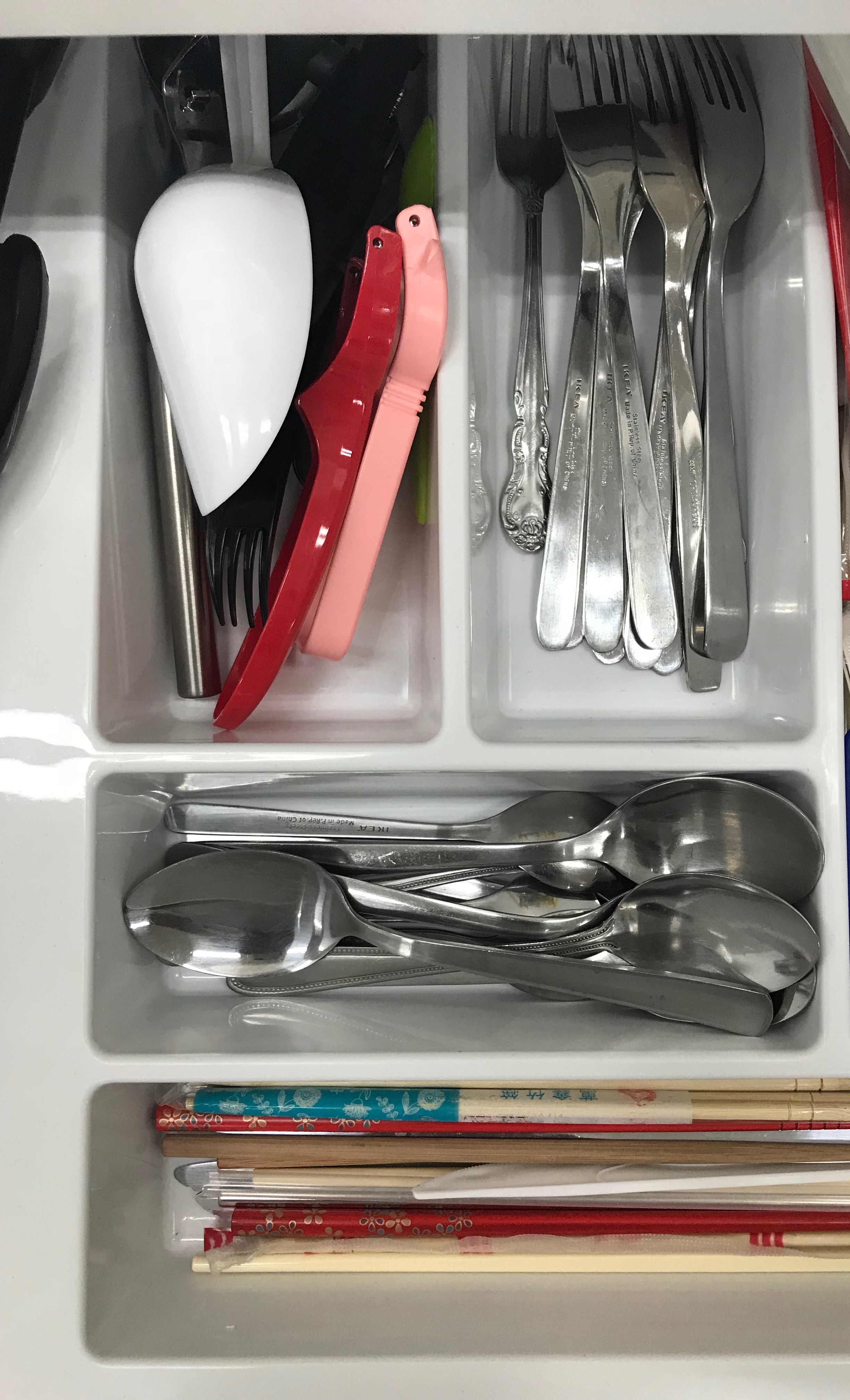 Photo by Ashley Tan
Photo by Ashley Tan
3. Have a bunch of extra containers in the cupboards to takeaway food in case some people forget to bring their own.
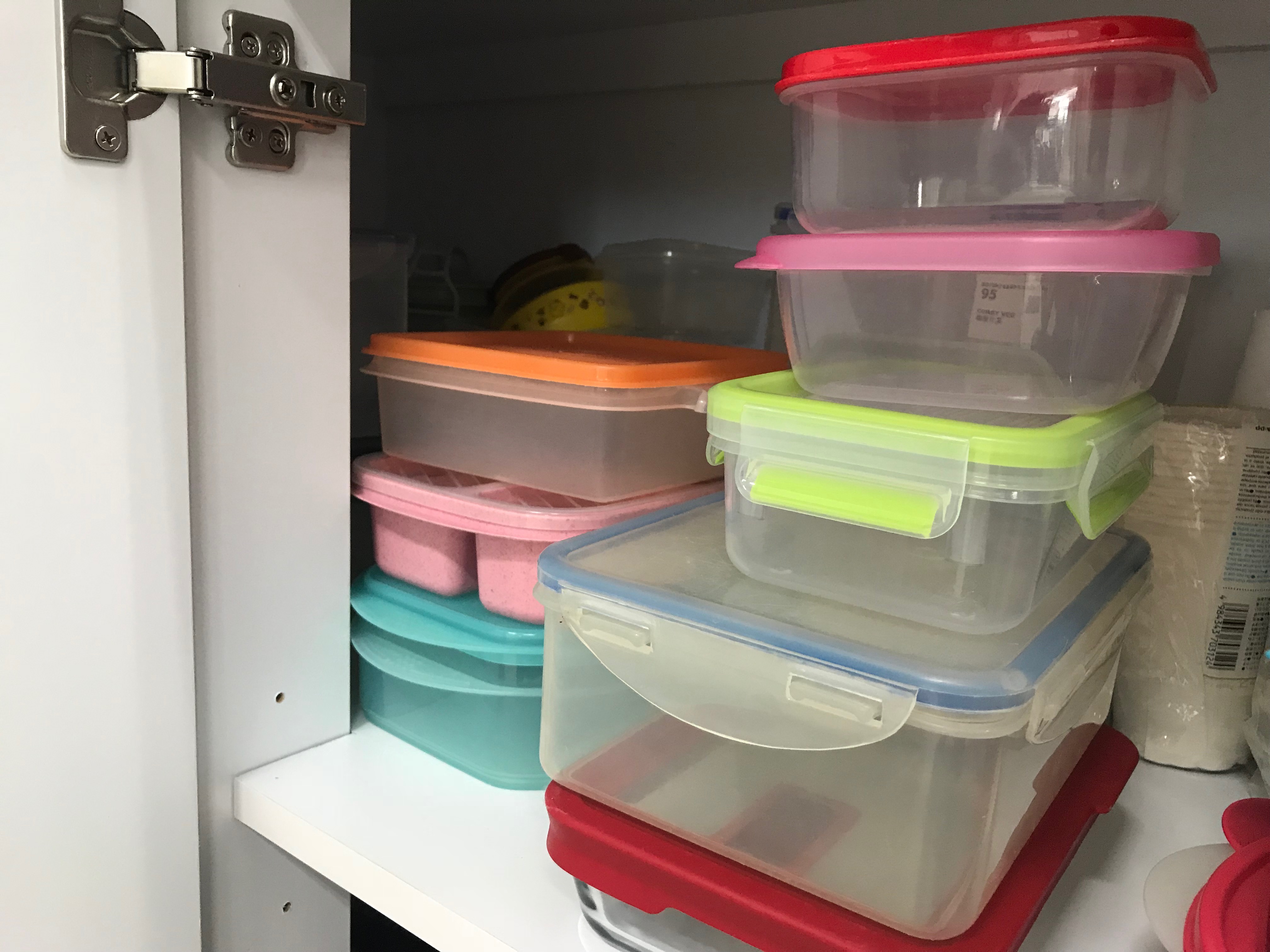 Photo by Ashley Tan
Photo by Ashley Tan
4. Have separate bins for recyclable and non-recyclable materials.
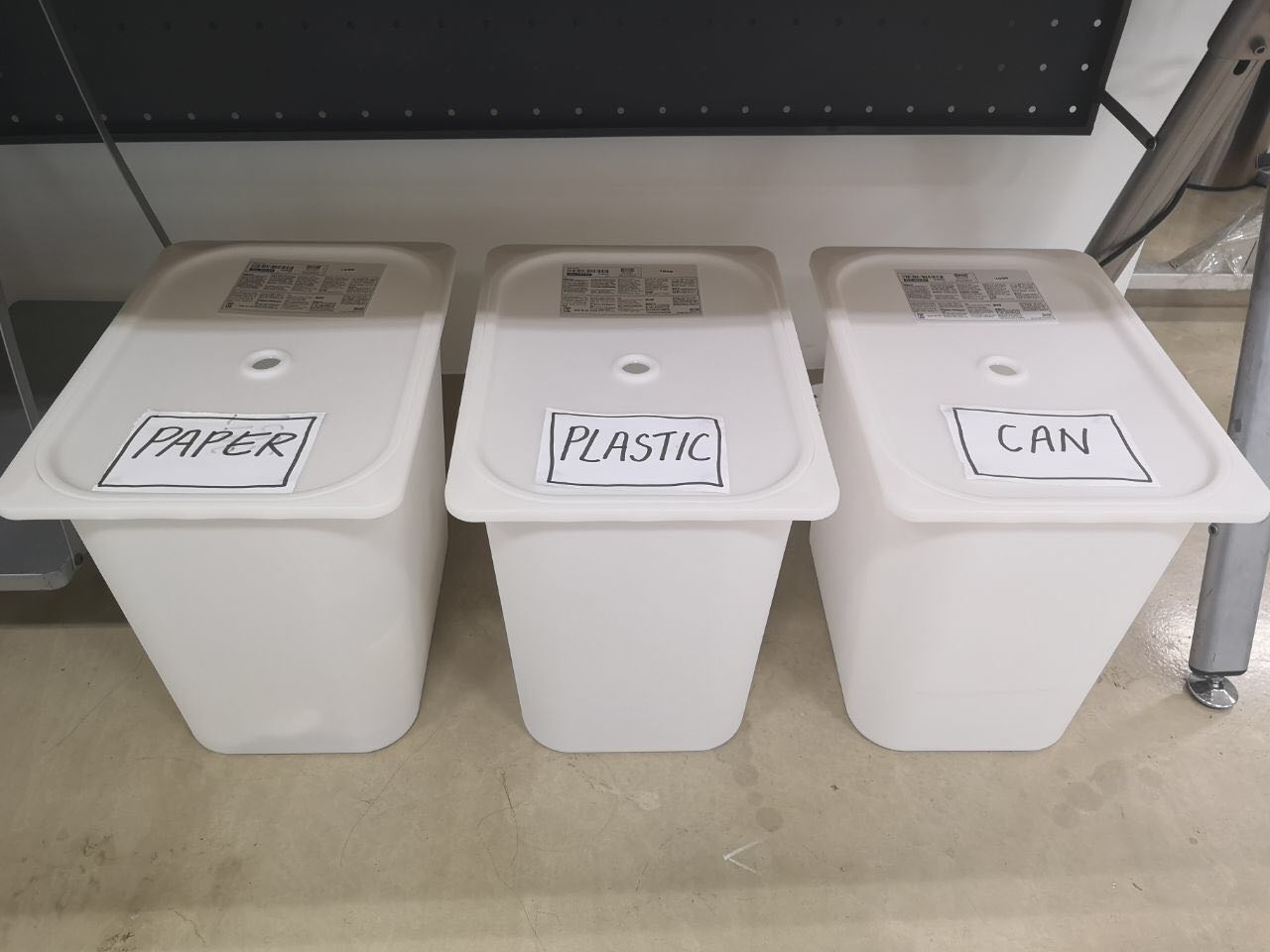 Photo by Joshua Lee
Photo by Joshua Lee
5. Lastly, invest in a coffee grinding machine instead of one that uses disposable coffee capsules. Single-use coffee capsules are convenient, but at the same time, are notorious for being hard to recycle and taking very long to degrade naturally.
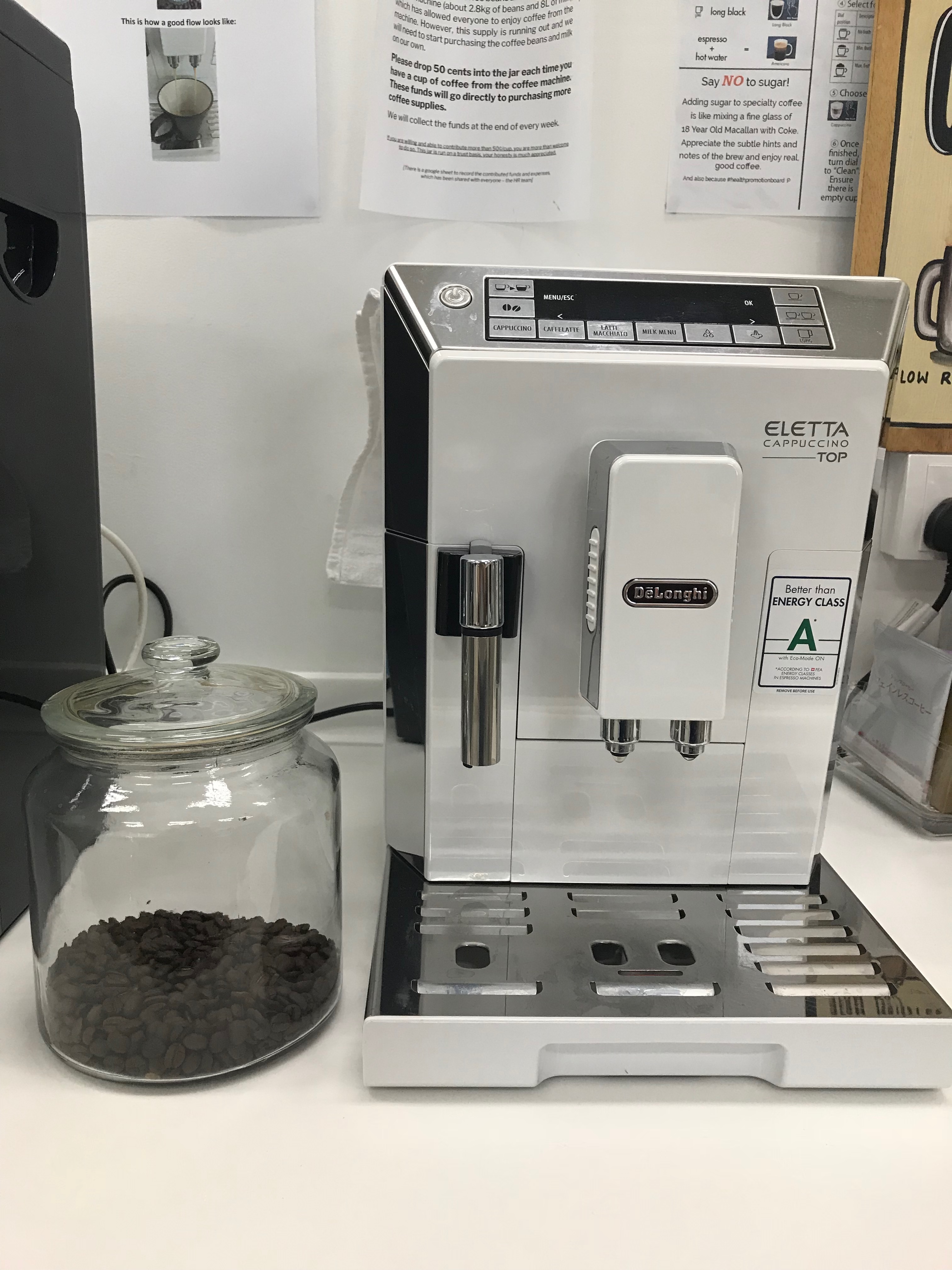 Photo by Ashley Tan
Photo by Ashley Tan
It's actually not that hard, right?
It's not just you, businesses are doing their part too
Yet, you may be wondering what's all the fuss?
Why do we, as consumers, have to pick up the slack when it's been shown that businesses are the real culprit?
According to a report in 2017, 100 companies in the world are responsible for 71 per cent of global carbon emissions.
But regular consumers need to alter their consumption habits to more sustainable ones as well. After all, it takes two hands to clap.
Increasingly, small sustainable businesses are popping up in Singapore, with zero-waste grocery stores, straw-free social enterprises and such.
But where would one go for a sin-free cup of coffee here?
Enter Foreword Coffee, a home-grown coffee roaster doing their part to ply people with their daily cuppa and protect the environment at the same time.
To reduce waste, Foreword has introduced several initiatives—patrons get 10 per cent off their coffee if they bring their own reusable cup.
 Photo from CleanGreenSingapore, Youtube
Photo from CleanGreenSingapore, Youtube
There is also a borrow-a-cup initiative available, where patrons can borrow a reusable cup from Foreword and return it at their convenience.
Check out the founder of Foreword and his inspiration here:
Motivated enough to do some good for the planet?
Top photo by Angela Lim and Ashley Tan
This sponsored article by the National Environment Agency (NEA) forced the entire Mothership team to be less lazy. Read more here.
If you like what you read, follow us on Facebook, Instagram, Twitter and Telegram to get the latest updates.
